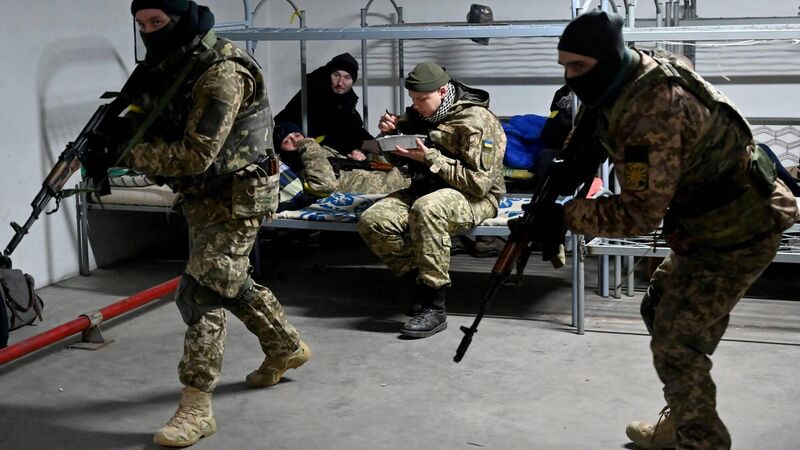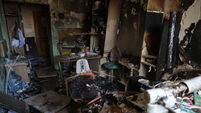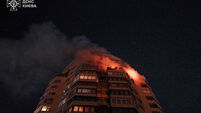Ireland will 'pay its share' of the EU's growing fund for Ukraine

A member of Ukraine's military reserve eats while his comrades engage in a training exercise in Kyiv. Ireland is one of three neutral EU states providing a range of non-lethal military aid ranging from body armour to ready meals. File Picture: Sergei Supinsky/AFP/Getty
Ireland will “pay its full share” of an expected increase of €500m in the EU’s special fund for the Ukrainian armed forces, due to be decided at a meeting of EU foreign ministers tomorrow.
A senior official in the EU’s European External Action Service (EEAS) told a Dublin webinar last Friday that EU members were considering increasing the size of the European Peace Facility (EPF) from €1bn to €1.5bn.













